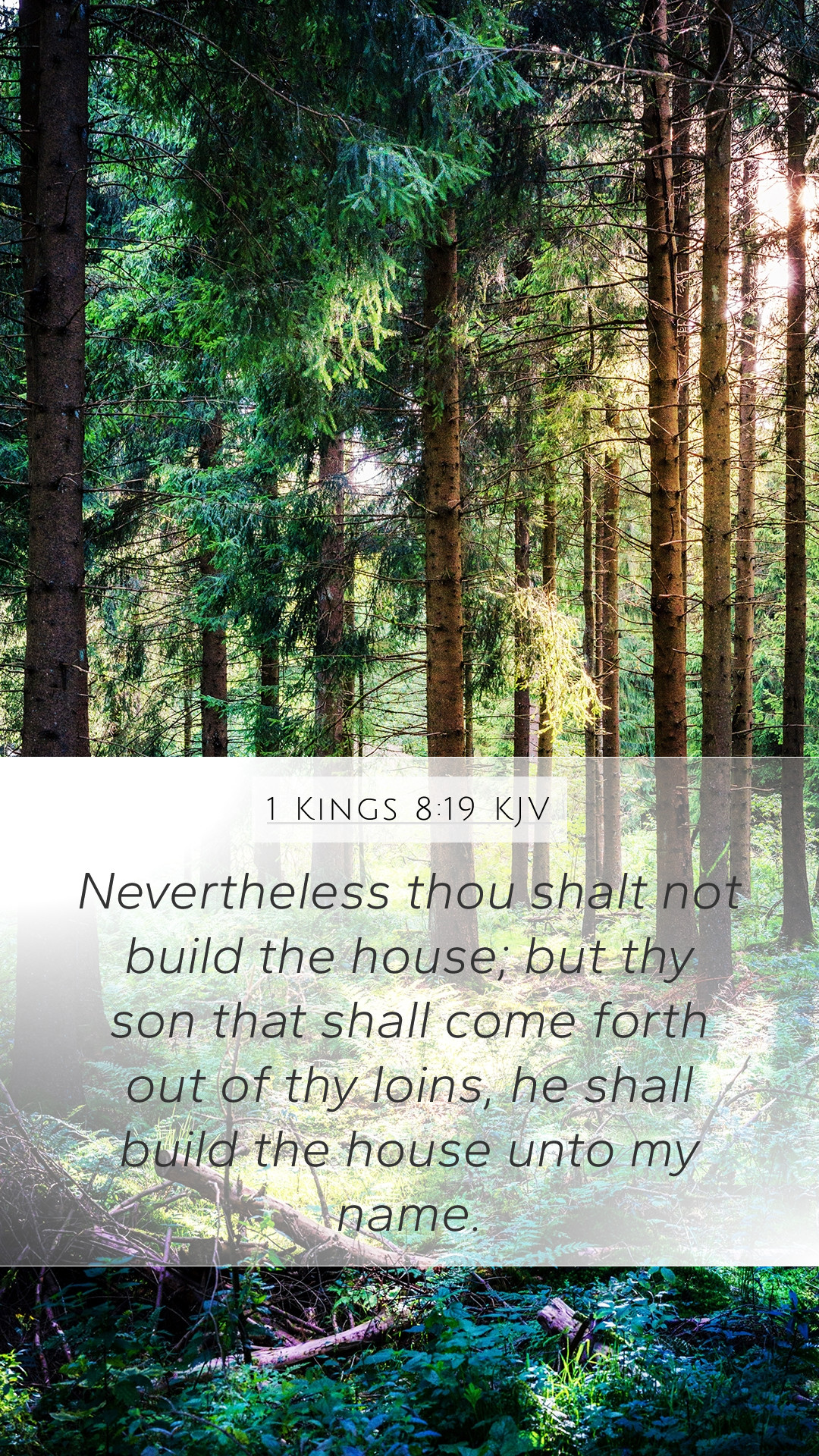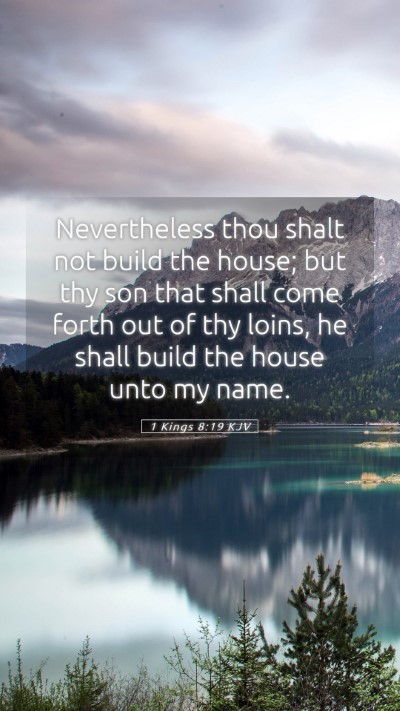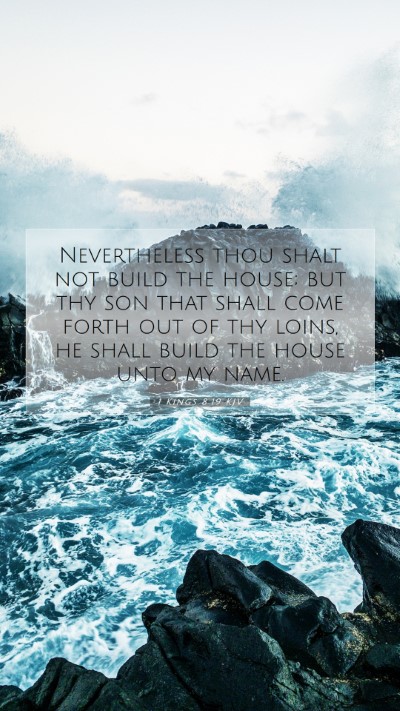Old Testament
Genesis Exodus Leviticus Numbers Deuteronomy Joshua Judges Ruth 1 Samuel 2 Samuel 1 Kings 2 Kings 1 Chronicles 2 Chronicles Ezra Nehemiah Esther Job Psalms Proverbs Ecclesiastes Song of Solomon Isaiah Jeremiah Lamentations Ezekiel Daniel Hosea Joel Amos Obadiah Jonah Micah Nahum Habakkuk Zephaniah Haggai Zechariah MalachiVerse
1 Kings 8:1 1 Kings 8:2 1 Kings 8:3 1 Kings 8:4 1 Kings 8:5 1 Kings 8:6 1 Kings 8:7 1 Kings 8:8 1 Kings 8:9 1 Kings 8:10 1 Kings 8:11 1 Kings 8:12 1 Kings 8:13 1 Kings 8:14 1 Kings 8:15 1 Kings 8:16 1 Kings 8:17 1 Kings 8:18 1 Kings 8:19 1 Kings 8:20 1 Kings 8:21 1 Kings 8:22 1 Kings 8:23 1 Kings 8:24 1 Kings 8:25 1 Kings 8:26 1 Kings 8:27 1 Kings 8:28 1 Kings 8:29 1 Kings 8:30 1 Kings 8:31 1 Kings 8:32 1 Kings 8:33 1 Kings 8:34 1 Kings 8:35 1 Kings 8:36 1 Kings 8:37 1 Kings 8:38 1 Kings 8:39 1 Kings 8:40 1 Kings 8:41 1 Kings 8:42 1 Kings 8:43 1 Kings 8:44 1 Kings 8:45 1 Kings 8:46 1 Kings 8:47 1 Kings 8:48 1 Kings 8:49 1 Kings 8:50 1 Kings 8:51 1 Kings 8:52 1 Kings 8:53 1 Kings 8:54 1 Kings 8:55 1 Kings 8:56 1 Kings 8:57 1 Kings 8:58 1 Kings 8:59 1 Kings 8:60 1 Kings 8:61 1 Kings 8:62 1 Kings 8:63 1 Kings 8:64 1 Kings 8:65 1 Kings 8:66


Understanding 1 Kings 8:19
Verse: 1 Kings 8:19 states, "Nevertheless thou shalt not build the house; but thy son that shall come forth out of thy loins, he shall build the house unto my name."
Summary of Verse Meaning
This verse signifies God's directive to King David regarding the construction of the temple in Jerusalem. Although David had the desire to build a house for the Lord, God appointed his son Solomon to fulfill this task, emphasizing the divinely ordained succession of leadership.
Bible Verse Commentary
Matthew Henry elucidates that David's intention to build a temple was noble, yet God, in His sovereignty, chose to defer this privilege to his son Solomon. This reflects the theme of divine ordering where God’s plans unfold through the generations.
Barnes highlights the importance of recognizing God's decision in this matter, indicating that despite David's earnest desire and preparations, it was ultimately Solomon who would carry out the building of the temple, showcasing God's control over His purposes.
Clarke points out that this verse serves as an example of God’s grace and choice, showing that lineage and succession are important in the fulfillment of God's plans. Solomon, as David's successor, would be the one to actualize the divine vision of the temple.
Theological Significance
This verse serves to underline God's sovereignty in the establishment of His worship and presence among His people. It demonstrates that while human intentions are commendable, it is ultimately God who orchestrates the completion of His covenant promises through appointed individuals.
Application of 1 Kings 8:19
For believers today, this verse reminds us of the importance of understanding God’s timing and plan for our lives. Often, God may place dreams and aspirations in our hearts but may appoint others to bring them to fruition. This requires humility, patience, and trust in God’s greater purpose.
Cross References
Bible Study Insights and Tools
Studying this verse can be greatly enriched by utilizing various Bible study tools such as:
Further Study Topics
Biblical Exegesis
This verse challenges scholars and students alike to think critically about the implications of God’s choice in leadership roles within His covenant community. Through exegesis, we can uncover deeper meanings and principles that apply across generations and contexts.
Conclusion
In conclusion, 1 Kings 8:19 serves as a pivotal point in the narrative of God's unfolding plan through the lives of David and Solomon. It invites believers to reflect on their roles in God’s greater vision and encourages reliance on His timing and purposes.